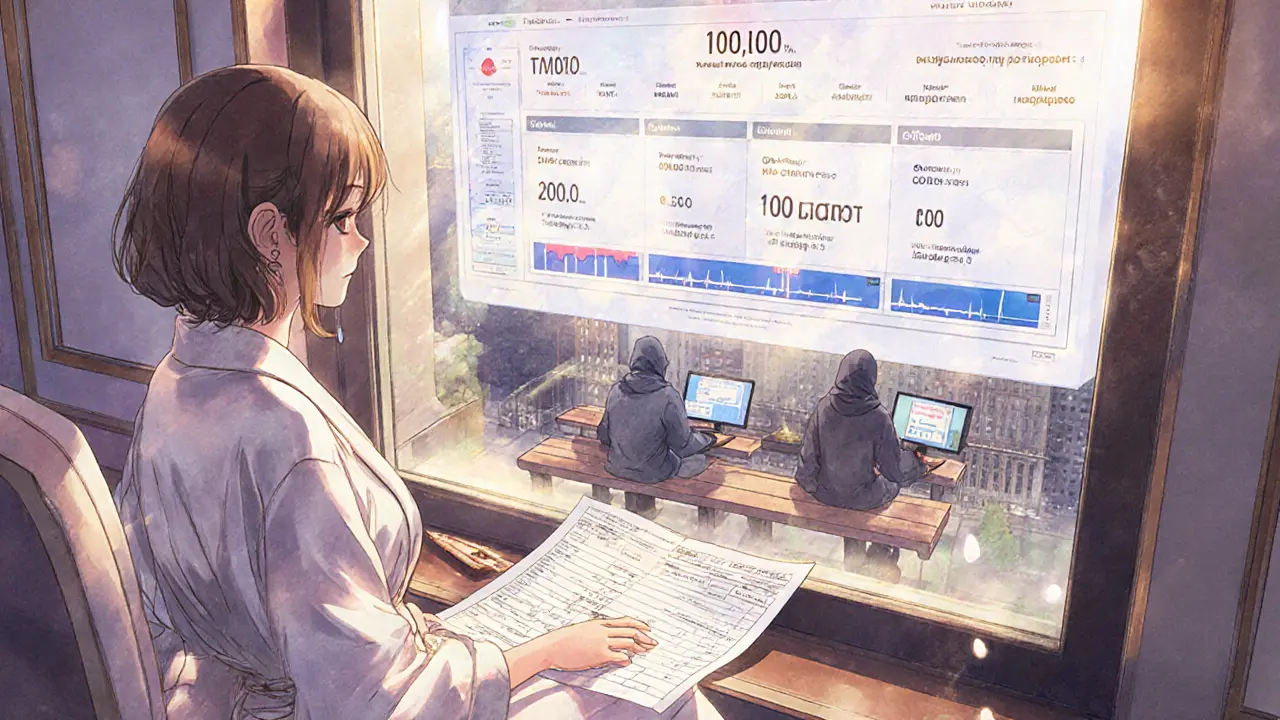EPR Qualification Checker for Russian Businesses
Check Your EPR Eligibility
The Experimental Legal Regime (EPR) allows Russian businesses to use cryptocurrency for international trade under strict conditions. This tool helps you determine if your business qualifies for the program.
On January 1, 2021, Russia made it illegal to use Bitcoin or any other cryptocurrency to buy coffee, pay for groceries, or settle a utility bill-inside the country. But just four years later, in summer 2024, the same government quietly opened the door for Russian companies to use crypto to sell goods overseas. This isn’t a contradiction. It’s a carefully designed split: one rule for home, another for the world beyond. If you’re in Russia and you hold Bitcoin, you can own it. You can mine it. You can trade it. But you can’t use it to pay your neighbor for a used car. Meanwhile, a factory in Novosibirsk can legally send a shipment of machinery to China and get paid in Bitcoin-if they jump through enough hoops.
What the Law Actually Says
The foundation of Russia’s crypto policy came in 2020 with Federal Law No. 114-FZ. It didn’t ban crypto. It defined it. Cryptocurrencies became digital financial assets-not money. That distinction matters. Money is issued by the state. Digital assets are just data on a blockchain. The law said: you can hold them. You can trade them. But you can’t use them to pay for anything within Russia’s borders. That ban took effect on January 1, 2021. And it’s still in force. Then came Law No. 382-FZ in mid-2024. This wasn’t a reversal. It was an exception. It allowed crypto payments for international trade. But only under strict conditions. The government didn’t want ordinary people paying for Netflix with Bitcoin. It wanted Russian exporters to bypass Western banking restrictions. So they built a narrow tunnel: only registered businesses, only for cross-border sales, only under the Experimental Legal Regime (EPR).Domestic Use: No Payments, But Everything Else Is Fine
If you live in Moscow and you bought 0.5 BTC in 2023, you’re not breaking the law. You can keep it in your wallet. You can sell it on a local exchange like Binance.ru (before it shut down) or through a P2P platform. You can even mine it-if you have the electricity and the cooling system. But if you try to pay your landlord in Bitcoin? That’s a fine. Starting January 1, 2026, individuals face penalties of 100,000 to 200,000 rubles ($2,500-$5,000). The crypto gets seized. Repeat offenders? Higher fines. Repeat again? Criminal charges. The Bank of Russia doesn’t want crypto replacing the ruble. Their reasoning is simple: crypto is too volatile. Too unregulated. Too easy to use for money laundering. Governor Elvira Nabiullina said it plainly: “Cryptocurrencies are not issued or guaranteed by any jurisdiction.” In other words, they’re not money. They’re gambling chips with no backing. And yet, millions of Russians still use crypto. Chainalysis estimates 18 million Russians-about 12% of the population-own some form of digital asset. Most of them use non-custodial wallets like Trust Wallet or MetaMask to avoid KYC checks. They trade on P2P platforms like LocalBitcoins or Paxful. Some even use Telegram bots to swap crypto for rubles. It’s not legal. But it’s common.International Use: A Legal Backdoor for Trade
Here’s where things get interesting. Russia’s export sector has been squeezed by Western sanctions. Banks like Sberbank and VTB can’t easily process payments in dollars or euros. So businesses turned to crypto. The 2024 law gave them a legal path-but only if they qualified for the EPR. To use crypto for international payments, a company must:- Register with the Bank of Russia
- Have a real-time transaction monitoring system capable of handling 1,000 transactions per second
- Integrate with the Federal Tax Service’s CryptoTrack system
- Pass AML checks against 15 sanctioned countries
- Keep 7 years of blockchain records with forensic-level detail

Who Can Trade Crypto? Only the Rich
The Bank of Russia didn’t just restrict businesses. They restricted people too. In February 2025, they introduced the “especially qualified investor” rule. To legally trade crypto on regulated platforms, you must have:- At least 100 million rubles in financial assets ($1.2 million), OR
- An annual income of 50 million rubles ($580,000)
How This Compares to the Rest of the World
Russia’s approach is unique. El Salvador made Bitcoin legal tender. China banned everything. India allows ownership but taxes it at 30%. The EU lets you pay with crypto, with consumer protections. Russia? It lets you own it, mine it, trade it-but only if you’re rich, only if you’re a business, and only if you’re sending it abroad. Even Singapore, known for being crypto-friendly, lets businesses operate with a $50,000 capital requirement. Russia’s is 2,000 times higher. Japan’s qualified investor threshold is $320,000. Russia’s is nearly four times that. This isn’t regulation. It’s exclusion.
What People Are Actually Doing
Despite the rules, crypto use in Russia is growing-not because of the law, but in spite of it. - 68% of Russian crypto users now use non-custodial wallets to avoid banks. - 42% say it’s hard to convert crypto to rubles because banks freeze accounts. - 79% support international crypto payments for trade. - 92% oppose the 100 million ruble investor rule. On Reddit’s r/CryptoRussia, users report paying for offshore services like cloud hosting or software subscriptions in Bitcoin because local banks block those payments. One user said: “I use crypto to pay for my AWS bills. It takes 3-5 extra days and 2.5% extra in fees. But at least I can pay.” On Telegram, private channels thrive. People swap USDT for rubles through intermediaries. Some use crypto to buy imported electronics from Kazakhstan or Turkey. Others send money to family abroad. It’s all gray. But it’s real.The Future: Tighter Rules Ahead
Russia isn’t backing down. The Central Bank’s September 2025 roadmap includes:- Monitoring non-custodial wallets by mid-2026
- Biometric verification for crypto transactions over 500,000 rubles ($6,250) by late 2026
- A potential ban on stablecoins by 2027


Petrina Baldwin
So they let the rich use Bitcoin but not me? Classic.
Natasha Nelson
This is wild. I mean, you can mine it, trade it, even own it-but pay for coffee? No way. It’s like having a Ferrari but only being allowed to look at it.
Richard Williams
It’s not about banning crypto-it’s about control. The state doesn’t want people bypassing the ruble, but they’re fine letting exporters slip through the back door. Smart move, really.
Claymore girl Claymoreanime
Let me guess-only oligarchs with offshore accounts and Swiss lawyers can legally trade? Of course. The 100-million-ruble threshold isn’t regulation-it’s class warfare disguised as financial policy. The average Russian? They’re supposed to just… wait. Wait for permission. Wait for approval. Wait for the state to decide they’re worthy enough to own digital gold. Pathetic.
Will Atkinson
I love how Russia’s policy is like a weird art project: ‘Crypto for the elite, crypto for exports, crypto for the underground.’ It’s not chaos-it’s intentional. The Bank of Russia is playing 4D chess while everyone else is just trying to buy groceries. And yet, 18 million people still hold it? That’s the real story. You can’t outlaw human ingenuity.
monica thomas
It's fascinating how this mirrors broader global trends. The state seeks to maintain monetary sovereignty while simultaneously engaging in global trade mechanisms that undermine it. The dichotomy is not merely legal-it is existential.
Edwin Davis
Typical Western propaganda. Russia is protecting its economy from dollar hegemony. If you can’t beat them, join them-by using crypto to bypass their sanctions. Smart. Not evil. Just strategic.
emma bullivant
the thing is… if you can mine it, why can’t you spend it? isn’t that the whole point? the blockchain doesn’t care if you’re in moscow or manhattan… it just… works. maybe the law is just scared of what it can’t control.
Michael Hagerman
Okay but imagine being the guy who has to file 17 documents to get paid in Bitcoin. Eight weeks just to send a shipment? Bro. You could’ve shipped three orders in that time. And now you’re stuck with a $22,500 compliance bill. This isn’t regulation-it’s a bureaucratic nightmare dressed in a suit.
Laura Herrelop
They’re monitoring non-custodial wallets? Biometric verification for transactions over $6,250? This isn’t about financial stability-it’s about surveillance. The government doesn’t trust the blockchain. They trust cameras, fingerprints, and data logs. They’re building a digital prison where even your crypto is tracked. And you think this stops people? No. It just drives it deeper. Into the dark web. Into Telegram bots. Into encrypted wallets no one can touch. The more they try to cage it, the more it becomes a weapon.
Nisha Sharmal
India does the same thing-tax crypto at 30%, ban P2P, but allow institutional trading. Russia is just more honest about it. They don’t pretend to be fair. They say: ‘You’re not rich? Too bad.’ And honestly? It’s better than Western hypocrisy.
Karla Alcantara
It’s sad but kind of beautiful how people still find a way. Even when the system says ‘no,’ they use Telegram bots, P2P swaps, and offshore services. Crypto isn’t about laws-it’s about freedom. And freedom doesn’t die just because a government says so.
Jessica Smith
18 million Russians holding crypto? That’s not adoption-it’s desperation. They’re using Bitcoin because the ruble is collapsing and the banks are corrupt. This isn’t innovation. It’s a last resort. And now they want to tax it? Great. Just another way to bleed the middle class dry.
Ralph Nicolay
It is imperative to note that the regulatory architecture established under Federal Law No. 114-FZ and its subsequent amendment via Law No. 382-FZ constitutes a bifurcated monetary framework predicated upon the ontological distinction between state-issued currency and non-sovereign digital assets. The exclusion of domestic retail usage does not constitute prohibition per se, but rather a reclassification of crypto as a non-monetary asset class.
sundar M
Bro, this is genius. Russia’s playing the long game. They’re using crypto to bypass sanctions, while keeping their people on the ruble. Smart. I mean, if you can’t win with the dollar, just use Bitcoin to sell steel to China. And let the little guys figure out P2P swaps. It’s like a national hack.
Nick Carey
So… you can mine Bitcoin but not buy a pizza with it? What kind of dystopia is this? I’d rather just use cash. At least cash doesn’t require 17 forms.
Sonu Singh
wait so if i mine 1 btc in siberia and sell it to a chinese buyer, its legal? but if i use it to pay my internet bill? illegal? lol. this is so messed up. but yeah, the paperwork is insane. my cousin tried and gave up after 6 weeks.
Peter Schwalm
People keep saying ‘this is just regulation,’ but look at the numbers: only 150 exporters are using it. That’s not a policy-it’s a performance. The government wants to look like they’re enabling trade, but they’re making it so hard that no one actually does it. It’s theater.
Alex Horville
Western media calls this ‘oppression.’ It’s not. It’s sovereignty. Russia is refusing to let foreign financial systems dictate its economy. Crypto payments abroad? Fine. Domestic use? No. That’s not tyranny-it’s self-defense.
Marianne Sivertsen
It’s like having a key to a vault… but only if you’re rich enough to open it. Everyone else gets to stare at the lock. And the weirdest part? People still find ways to sneak in. That’s not failure-that’s human nature.
Shruti rana Rana
So cool! 🤩 Russia is like a tech-savvy dragon guarding its treasure-letting only the chosen few breathe fire with crypto. But the people? They’re the real wizards, using Telegram and P2P to turn gold into bread. 💪🌍
Stephanie Alya
100 million rubles to trade crypto? So… only billionaires can play? Meanwhile, my cousin in Kazan pays for his Netflix in USDT and gets his account frozen. This isn’t protection-it’s a joke.
olufunmi ajibade
This reminds me of Nigeria’s crypto crackdown-same story. Government says ‘no’ but people still do it. Why? Because money talks. And if your currency is falling, you’ll find a way to hold something real. Crypto isn’t the problem. The economy is.
Manish Gupta
they say crypto is volatile… but ruble is worse. at least btc doesn’t lose 20% in a week. and the mining? siberia is perfect for it. cold, cheap power, and no one cares. so they ban spending but let mining? that’s not logic. that’s irony.
Sarah Hannay
It’s worth noting that the government’s position is not inconsistent-it is strategically layered. The domestic prohibition serves monetary policy objectives, while the international exception facilitates geopolitical resilience. The two are not in conflict; they are complementary pillars of a broader economic strategy.
Claymore girl Claymoreanime
Oh, so now it’s ‘strategic’? That’s just corporate-speak for ‘we’re letting the rich get richer and the poor get locked out.’ You think the average Russian gives a damn about ‘geopolitical resilience’? They just want to pay their rent without getting fined. The real strategy? Control. Surveillance. Exclusion. Call it what it is.